
Background information
End of the line for child abuse deepfakes? The Grok crisis and its impact
by Florian Bodoky
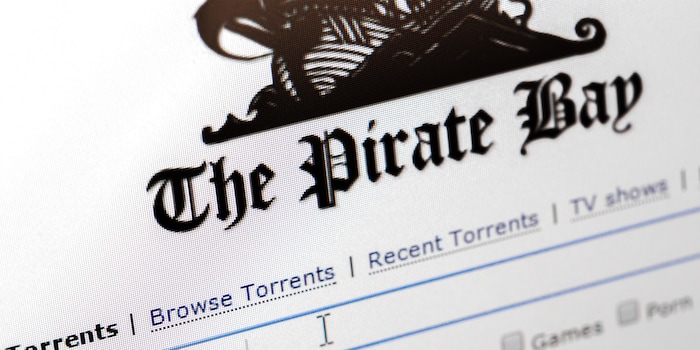
There are many myths surrounding Swiss copyright law in relation to downloads. Downloading, uploading, streaming – what exactly is allowed, and what isn’t? And why?
What began around the turn of the millennium with Napster reached its peak in the 2010s with torrent technology and one-click hosts such as Rapidshare. I’m talking about downloads and file sharing online, both peer-to-peer and server-to-hard-disk. In Switzerland, too, users downloaded as much as they could. Music, movies, shows, games and other software.
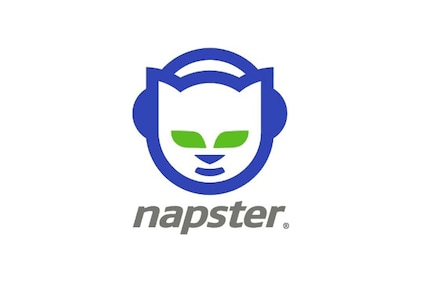
Due to the launch of VOD (video on demand) and streaming services such as Netflix and Spotify, file sharing has gone somewhat forgotten. Streaming services allow users to watch and listen to high-quality content at a low cost. Way more convenient than constantly looking for new, trustworthy download sources.
Recently, however, articles on the subject have started popping up again. But why? Well, numerous price hikes for streaming services and the fragmentation of content for one thing. For example, you can only watch Disney and Fox productions on Disney+, HBO shows only on Sky, Paramount creations only on Paramount+ and so on.
So if you want to watch or listen to everything, you’ll have to pay for multiple subscriptions. And quite a pretty penny at that. You could also stream and download everything for free online. After all, it’s legal in Switzerland – or is it? In typical Swiss fashion, the answer is «it depends».
In some European countries, the authorities are taking rigorous action against film and music piracy. Even downloading a single file can lead to fines, criminal proceedings and warnings.
In Switzerland, the legal situation is somewhat different. Here, you can download or stream certain content from the internet without paying for it under certain circumstances. What exactly you’re allowed to download and what you can do with this content is regulated in the Federal Act on Copyright and Related Rights. Article 2 states what content is affected by this law. Online this includes:
Chapter 5, Article 19 then explains exactly what you’re allowed to do with this content. It states: «Published works may be used for private use.» Paragraph a. specifies what is considered private use. Specifically, «any personal use of a work or use within a circle of persons closely connected to each other, such as relatives or friends». This means you can download music, e-books or films and shows and consume them either alone or with friends or family.

You can also watch a downloaded movie with a school class if you’re a teacher – especially during the last week before the Christmas holidays, as is often a tradition. But if you organise an open-air cinema in your garden and publicly hand out invitations to strangers, that’s going too far.
It’s also fine to stream music, shows or a movie from a website instead of downloading them as a file. Be it in an embedded player or directly from your hard disk, both are fine.
Why does Switzerland have this regulation when other countries don’t? Because you actually are indirectly paying for it. In Switzerland, so-called empty carrier remuneration is a thing. Companies that manufacture or import storage media such as DVDs, SSDs or USB sticks must pay a levy (Copyright Act, Article 20, paragraph 3). These levies are paid to the individuals who own the rights to films or music. These rights in turn can be asserted through so-called collecting societies: Pro Litteris for writers and journalists, Suisa for musicians and Suissimage for filmmakers.
Collecting societies collect royalties from companies and pay them out to the rights holders, depending on the scope of the rights claimed. The Swiss Federal Institute of Intellectual Property (IPI) monitors that this is done properly, supervising collection societies (Art. 52 et seq.
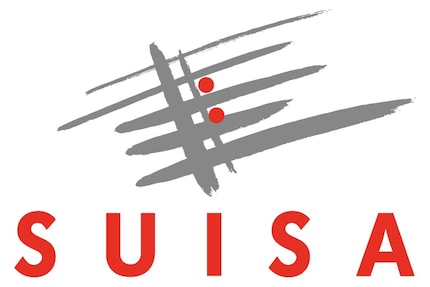
In most cases, however, manufacturers don’t simply pay this fee themselves. They add them to the retail price of SSDs and USB sticks. So if you buy a memory stick, it’d probably be a bit cheaper if there wasn’t this fee. But then Article 19 of the Copyright Act probably wouldn’t exist either.
For example, you can’t download software. This is expressly excluded from the rule, as you can read under Article 19, paragraph 4. By the way, this also applies to videogames. One exception to this exception: if you’ve paid for the right of use, you can, of course, download the program. A game on Steam, for example. Even on several PCs, provided they belong to you. This is regulated in Article 21.
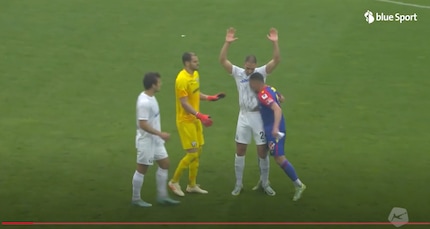
There are also exceptions for streaming. You won’t be penalised if you stream content from dubious sources. However, this doesn’t apply to live broadcasts that aren’t transmitted for free. Example: you’re allowed to stream SRF content because it’s broadcast for free (and you also pay Serafe fees). However, public live streams «of subscription television programmes or of programmes that cannot be received in Switzerland» are prohibited – say a football match by private broadcaster Blue. This is stated in Article 22, paragraph 3 of the Copyright Act. You’ll often find so-called Ace URLs streaming matches, at least for better-known leagues such as the Premier League or tournaments such as the Champions League. All banned.
When uploading, the situation initially looks simpler. Uploading a movie, series or music to the internet and offering it to other users is illegal. You can be prosecuted for this, with a damages claim for instance. This is stated, inter alia, in Article 19, paragraph 3 and Article 20, paragraph 2 of the Copyright Act.
Excluded here are works for which you are the registered rights holder (Art. 33 ff.) or content where the copyright has expired. Protection persists from the moment of creation (say, a piece of music) up to 50 or 70 years after the death of the author – this varies depending on the content (Article 29 ff.). For example, you can play a song by Beethoven on the piano and then upload it to YouTube. Due to the expired term of protection, it’s considered common property.
The fact that certain downloads are legal in Switzerland while their uploads aren’t has an impact on which sources you’re allowed to use for your downloads. This is because the upload ban also applies if you upload or copy something unintentionally. You therefore don’t have to actively upload a movie to a public server to make yourself liable to prosecution. Even if you use BitTorrent or peer-to-peer networks, you’re falling into the trap. Their technology is based on uploading and downloading something at the same time. You should therefore make sure you only download files from one hosting server – this way the traffic only goes in one direction, namely to you.
This is how the whole file-sharing download game started. Two clients are linked directly with each other, classic peer-to-peer. You look for something you want to download. The client finds it on someone else’s PC and downloads it from there. If someone else then searches for the file, they can download it from you. In this case, you’re uploading something too.
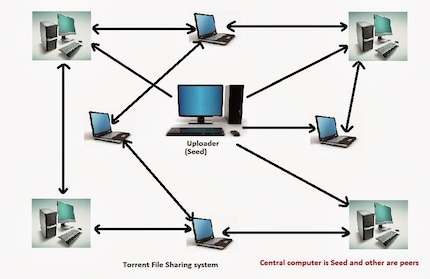
When you install a torrent client and use it to download files, your computer joins a torrent network. Let’s say you now want a certain movie. If you search for it, the network contacts the tracker located in the torrent file. It searches for so-called connected users who have the same file on their computer. This file will now be downloaded to your computer in small data packages from all sources. Up to this point, you’re a «leecher», i.e. someone who only downloads. However, if you already have a complete version of the file on your hard disk and another user searches for it, you also become a «seeder», i.e. someone who shares torrents. The number of seeders therefore stands for the number of people sharing any given file. The more seeders there are, the faster the download. The problem is, you become an uploader – which is illegal – and can be punished.
So, you can download but not upload. But the law says nothing about where you can download and stream content. According to the prevailing doctrine, you aren’t liable to prosecution even if you know for a fact that the file was uploaded illegally by someone else.
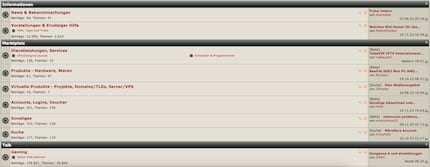
Even if the website is called «illegallystolencontent.com», for example. So says the Federal Institute of Intellectual Property.
Header image: Shutterstock
I've been tinkering with digital networks ever since I found out how to activate both telephone channels on the ISDN card for greater bandwidth. As for the analogue variety, I've been doing that since I learned to talk. Though Winterthur is my adoptive home city, my heart still bleeds red and blue.
Interesting facts about products, behind-the-scenes looks at manufacturers and deep-dives on interesting people.
Show all
Background information
by Florian Bodoky

Background information
by Luca Fontana

Background information
by Luca Fontana